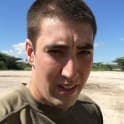Insider profil
Keen to receive questions about
Top Insider Advice
All doctors at some point will have a difficult time, and many will have considered leaving medicine or the NHS. That might be why you are reading this! I am very glad that I decided to find a different way to continue my career, and would recommend that anyone having doubts has a look to see what else is available. If you love adventure and a bit of a challenge, the Army is an excellent opportunity. You will need to take 3 years out between FY2 and starting specialty training, but most Army doctors will tell you this is the most enjoyable 3 years of your career! After those 3 years, you will likely have a great looking CV and a much clearer idea of what you want to specialise in. The majority of doctors will stay employed by the Army during the training years, although some may choose to return to the NHS to train, this is usually if they decide to do a specialty that the Army doesn't provide (eg Paediatrics). It has been an excellent career change for me, and I would highly recommend it to anyone.
Career path
Regimental Medical Officer
British Army
Started 02/2023 to PresentGP Specialty Trainee
British Army
From 08/2019 to 01/2023GDMO (General Duties Medical Officer)
British Army
From 10/2016 to 08/2019Company
What do you like about your job and the company?
Greatest achievements
After finishing FY2 I felt like my life had become all about medicine. I had no time to do anything else! So my achievement I am most proud of is nothing to do with medicine. I am most proud that I found a way to learn a new sport and do well at it. I am proud that there is more to my life now than just work, and that I have the time to try new sports and activities and really enjoy my free time. While the army has provided me many opportunities to further my career (they are excellent at supporting courses and helping you build a CV), and I am proud of how I have developed as a clinician over the past few years, they have also provided me with plenty of opportunities to develop myself as a person as well.
Shaun M
Top Insider Advice
Learning to live within the values of the British Army is the best way to live for opportunities and self-improvement. Courage - have the courage to take opportunities, and volunteer for things that others won’t. Discipline - don’t be easily led, and always do the right thing - even if there is nobody watching. Respect - respect is often hard to earn and easy to lose; treat others the way you want to be treated and don’t forget to respect yourself. Integrity - be honest with yourself and others: you’ll learn faster and better for it. Loyalty - be loyal to your values and don’t fall into following the wrong crowd. Be loyal to your friends and family. And, most importantly, be loyal to yourself and what you want to achieve. Selfless Commitment - do things with conviction, work hard, and offer yourself up to always being there for people when you can. Following these values will give you the best chance to achieve anything you want in the Army - whether that's a promotion, time away doing sports, or making friends. All your winnings and failings will come back to asking yourself, "Did you stick to the CDRILS?"
Holly J
Financial Systems Administrator
Top Insider Advice
No matter what anyone tells you, your career is yours to make of what you wish. There are endless opportunities, be it sport, travelling, adventure training, being attached to certain units, doing a different role within the role you already do, the opportunities are endless.
Robert H
Top Insider Advice
I loved being a Tank Commander, i worked alongside some of the best people in the Army. That community is why i joined the Royal Tank Regiment. I was surrounded by people who i liked and allowed me to be myself. Although i have changed path in the Army i always have my Regimental family to return to. They form the foundation of my new skillset and taught me lessons that make me successful today.




